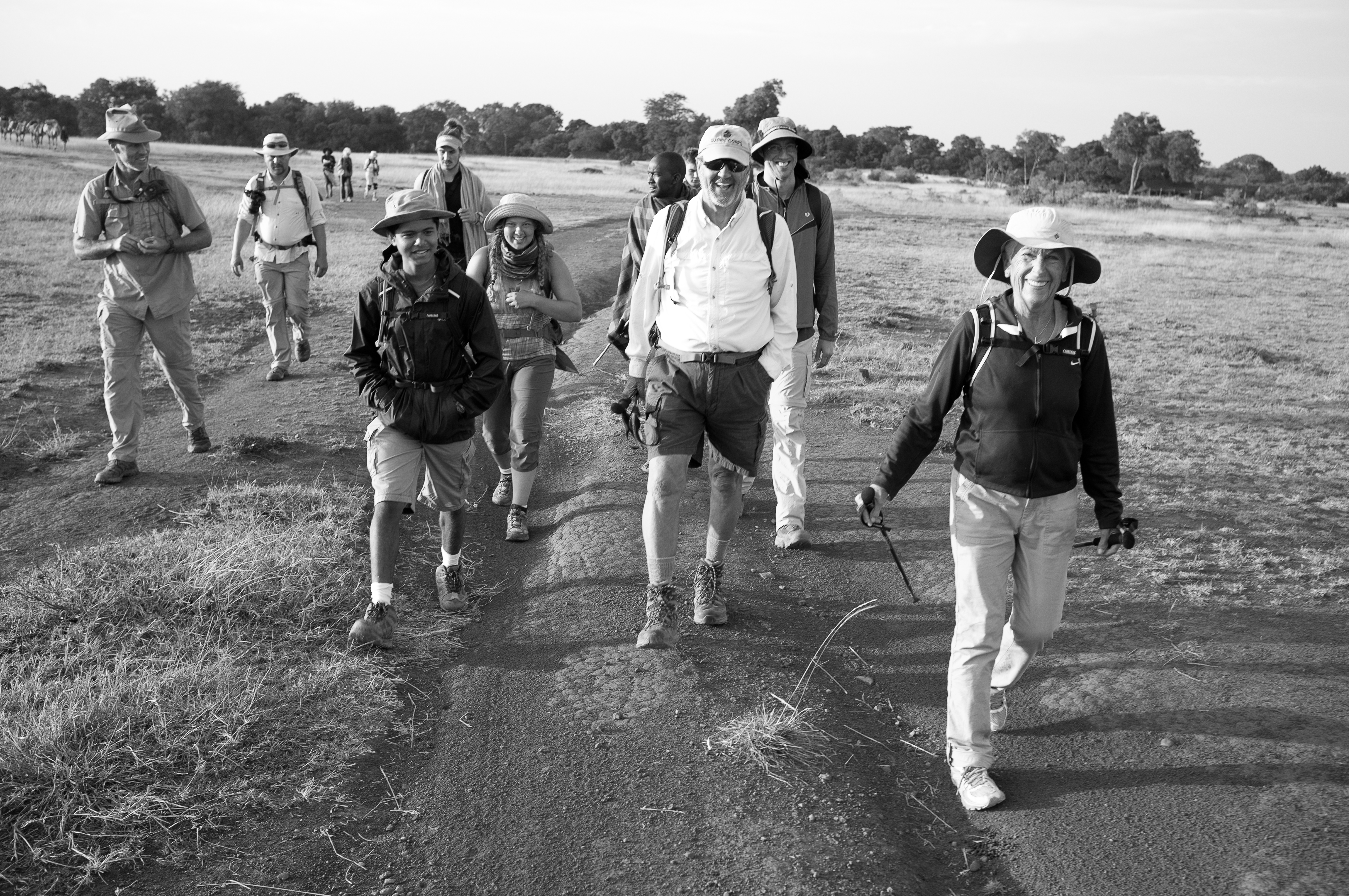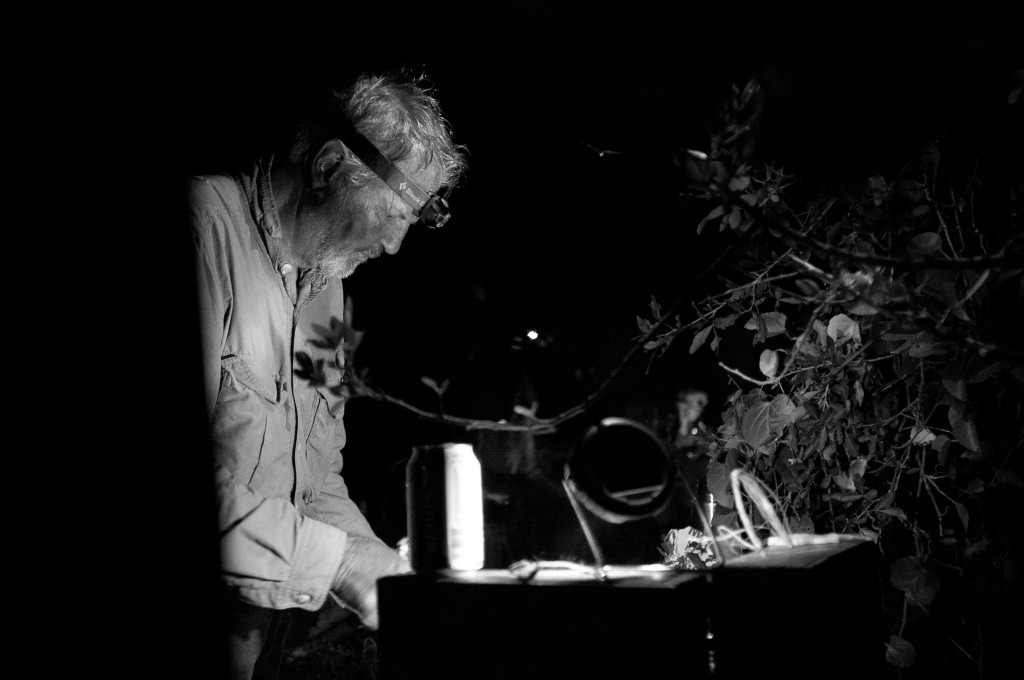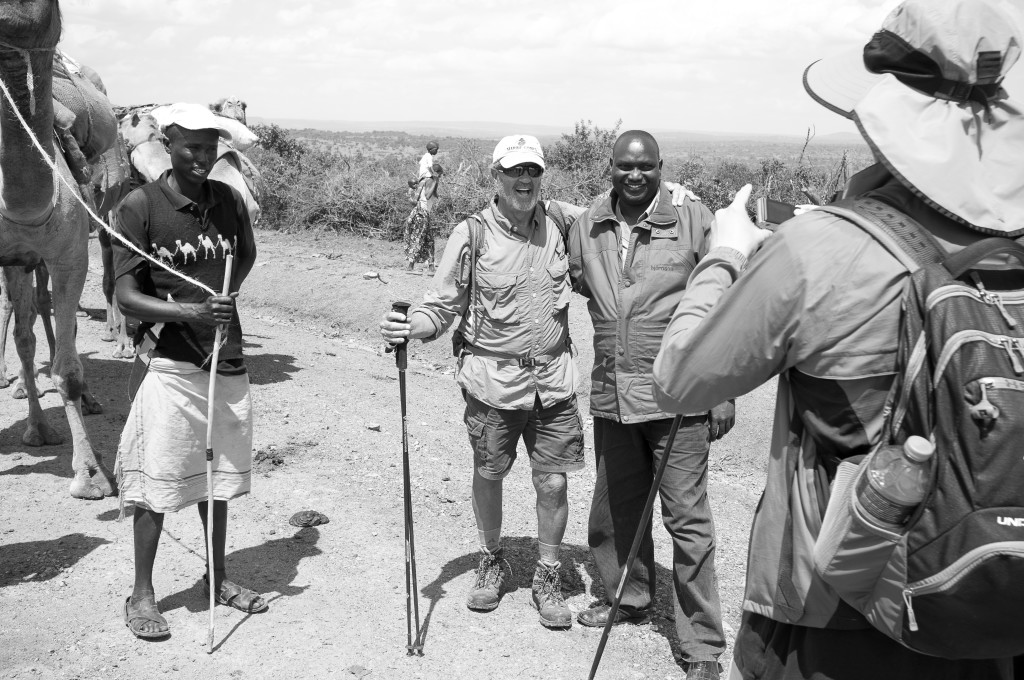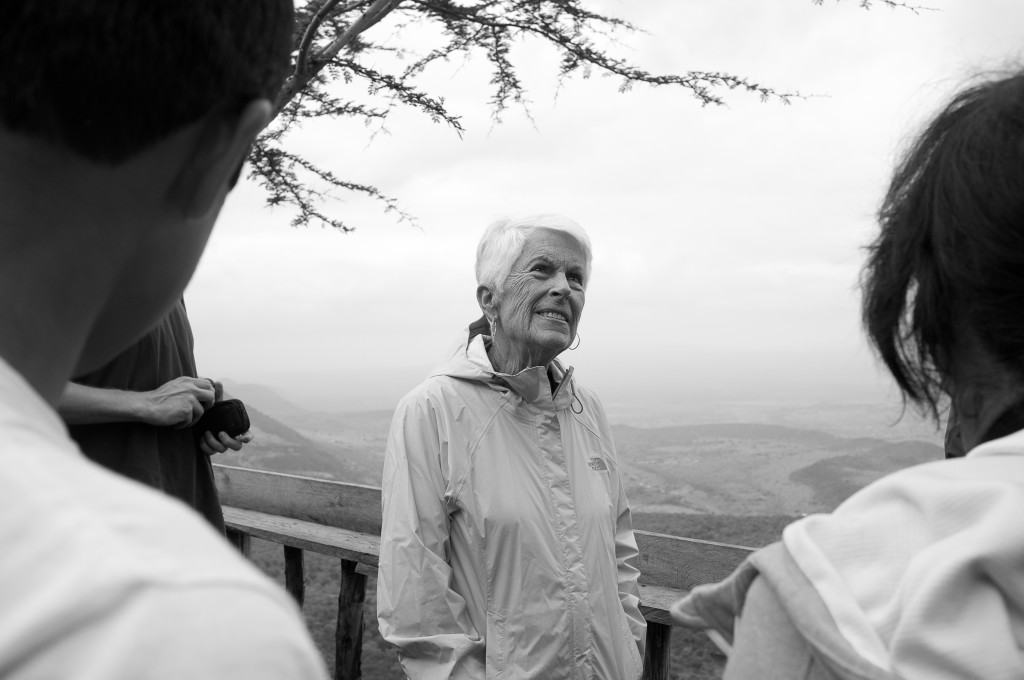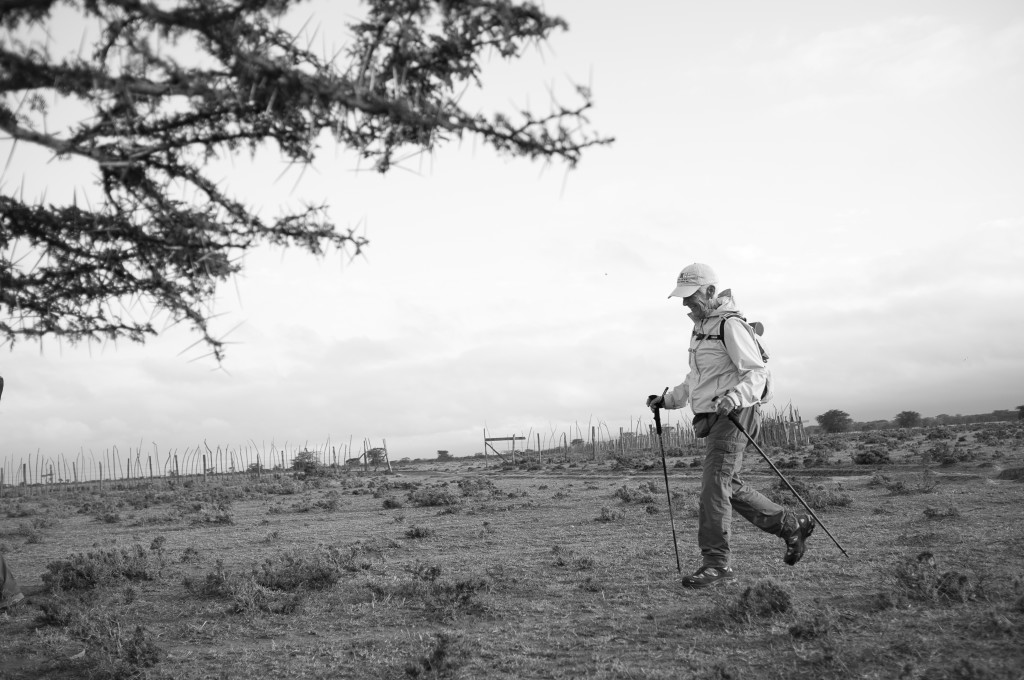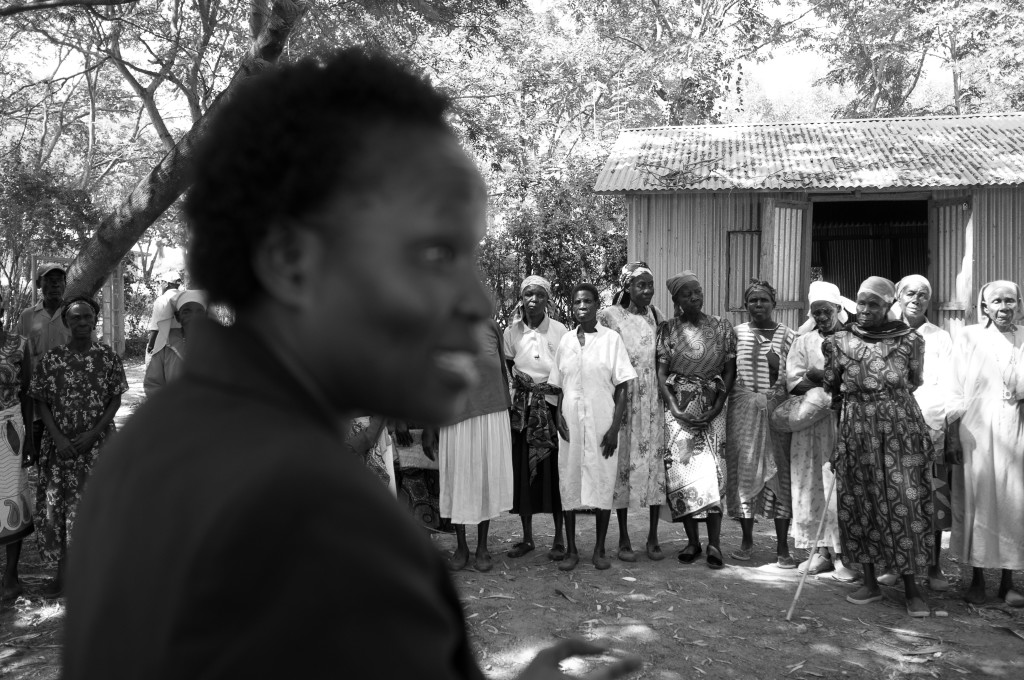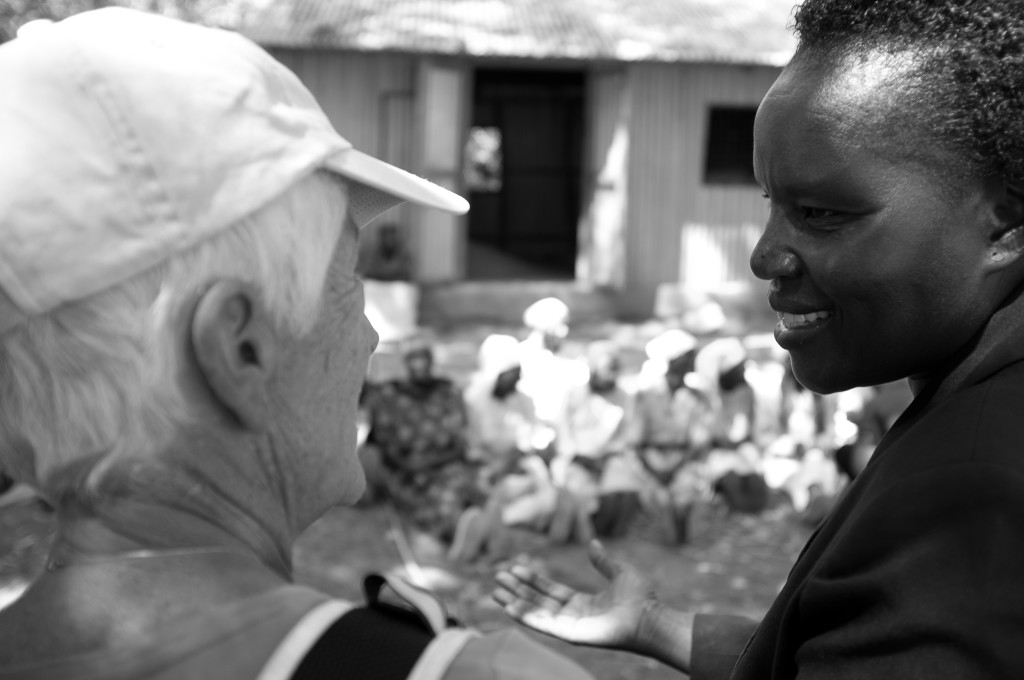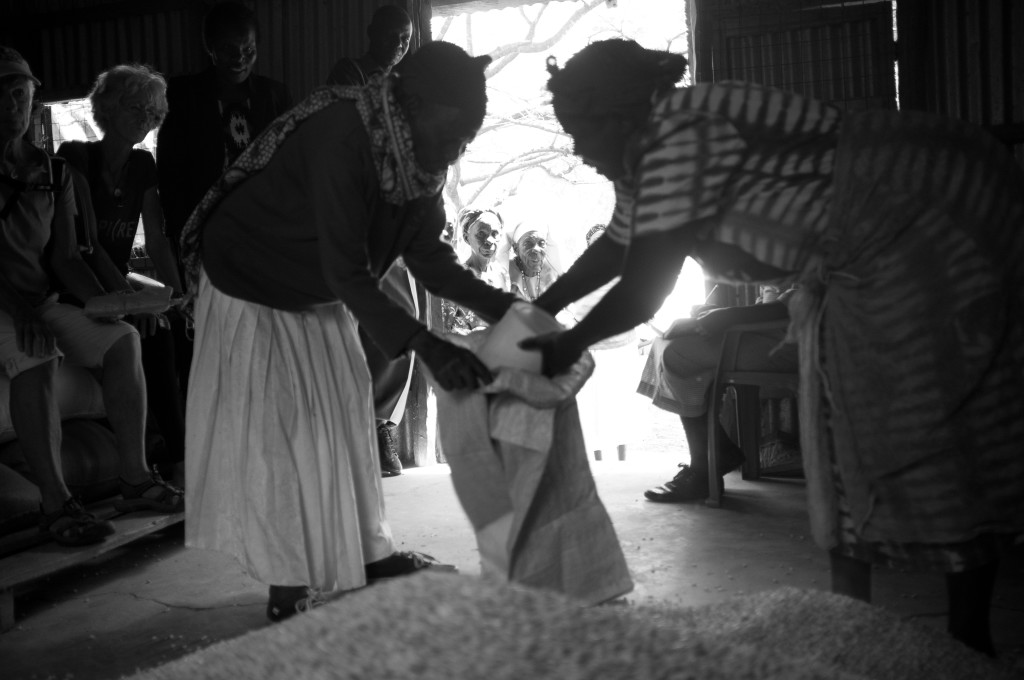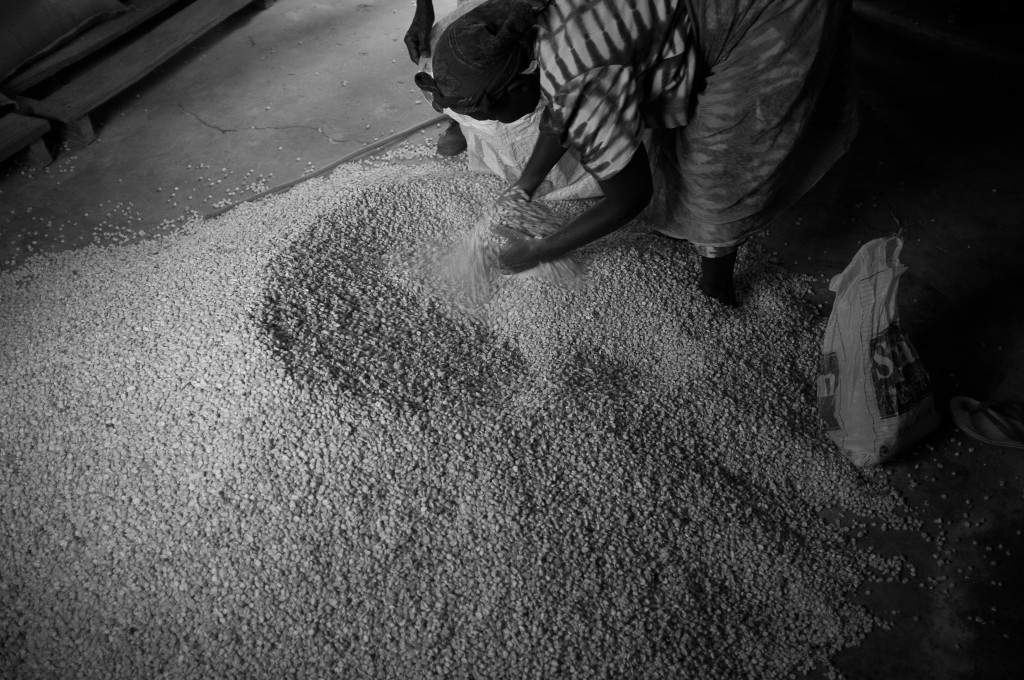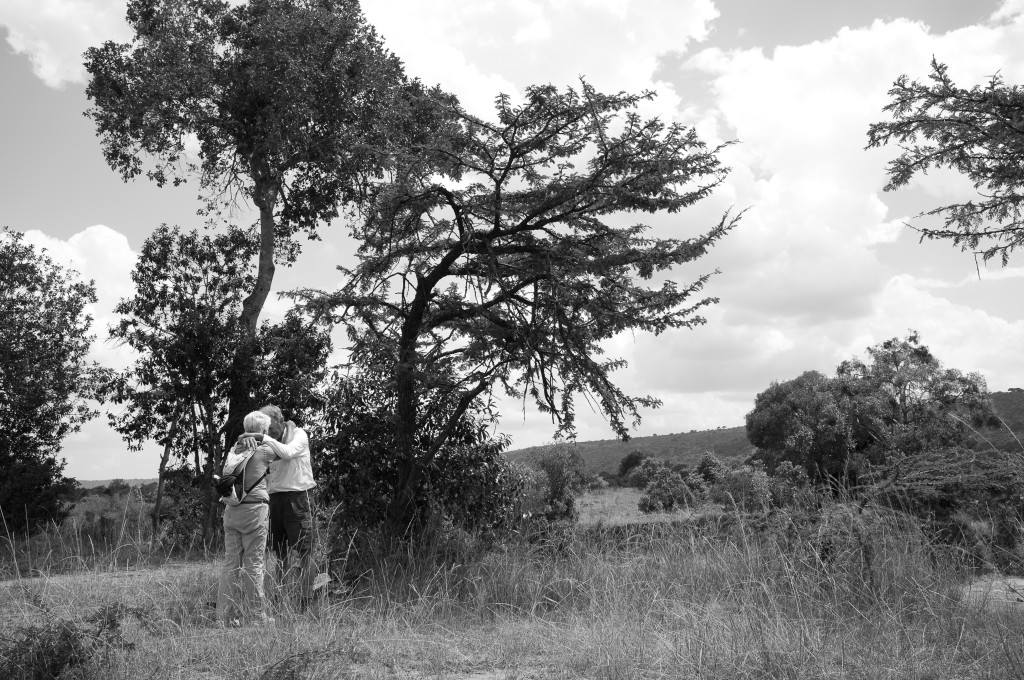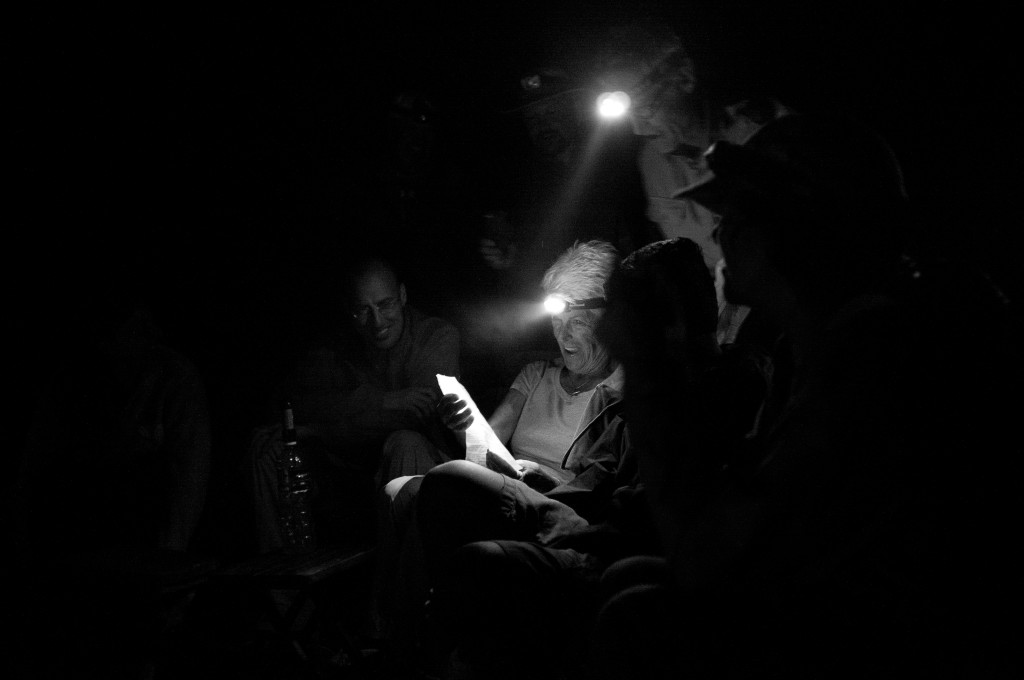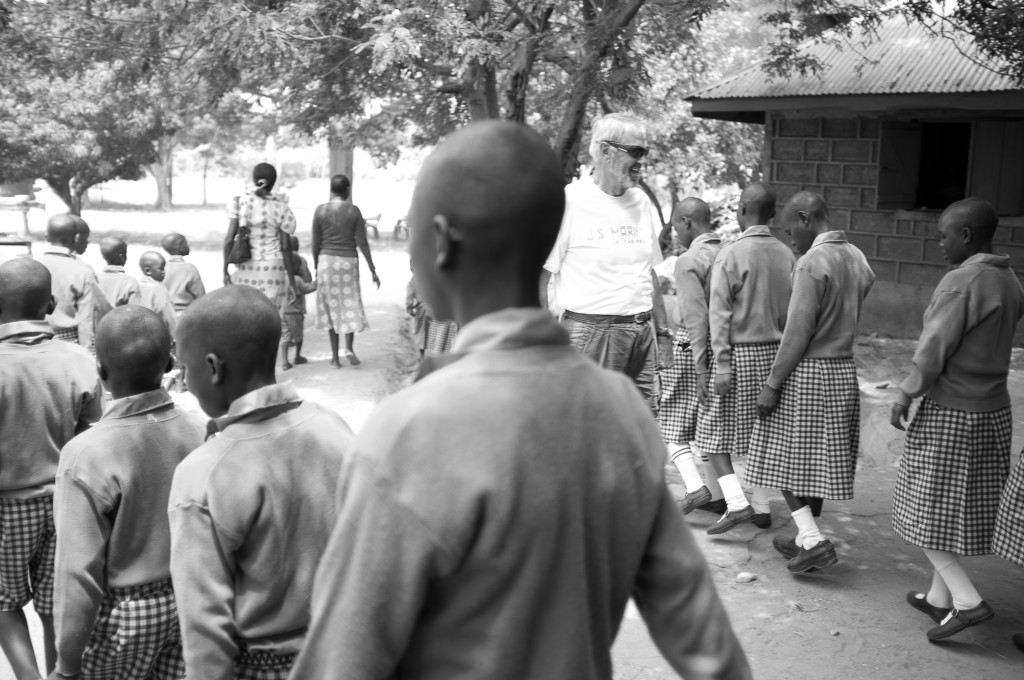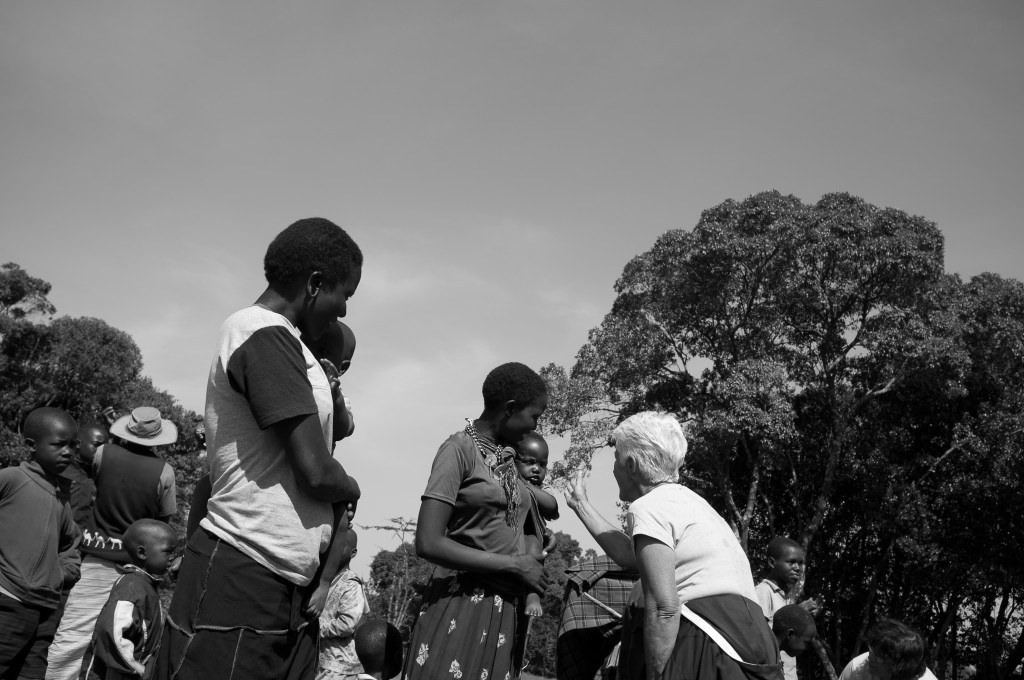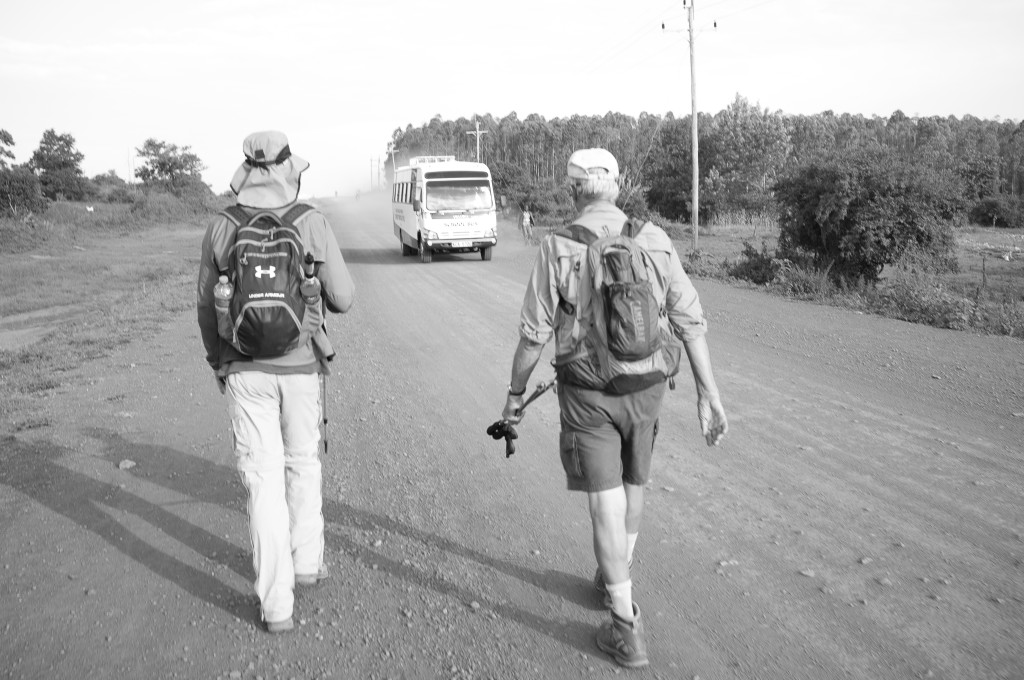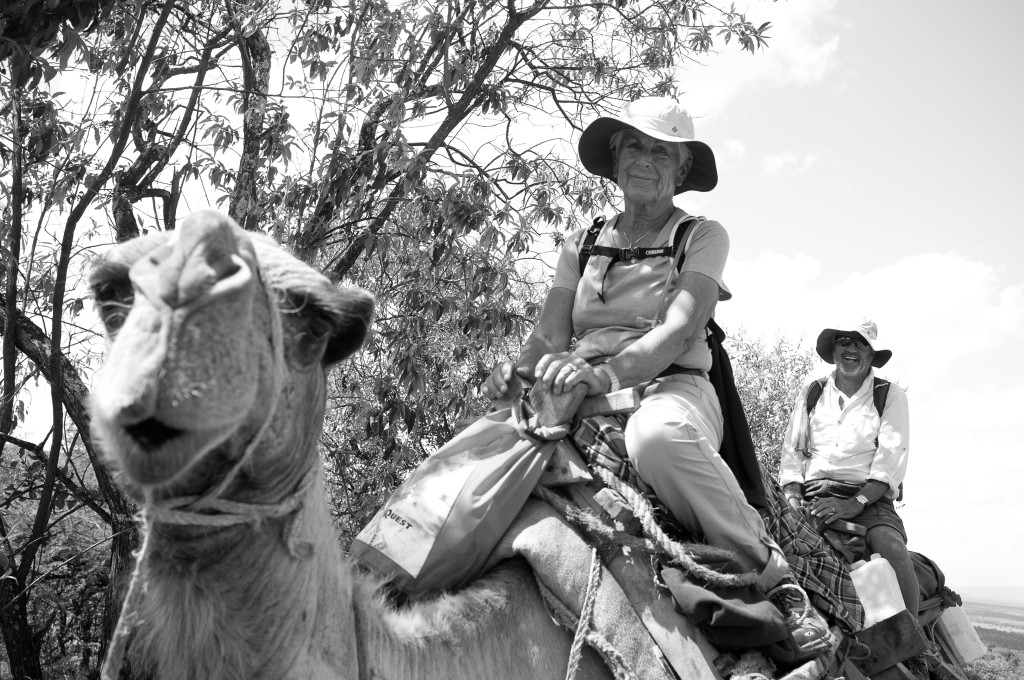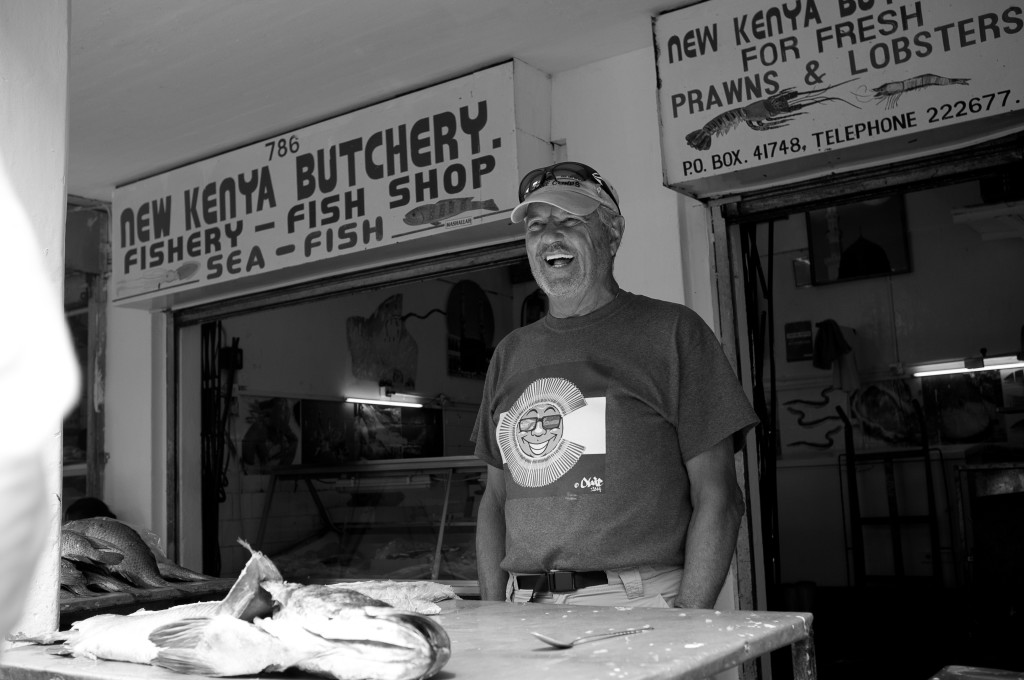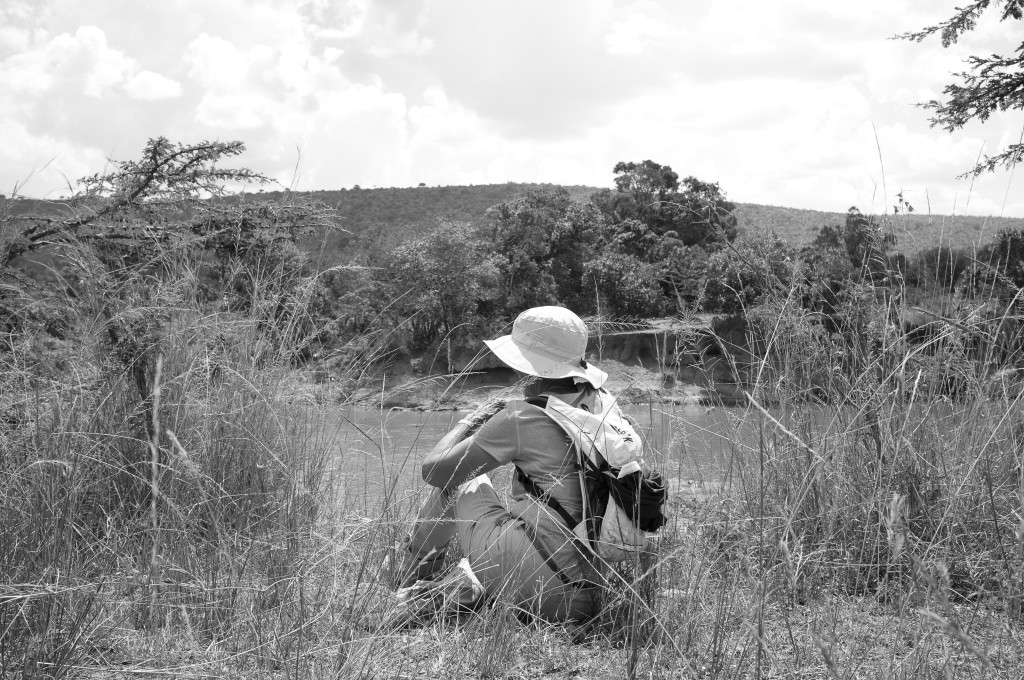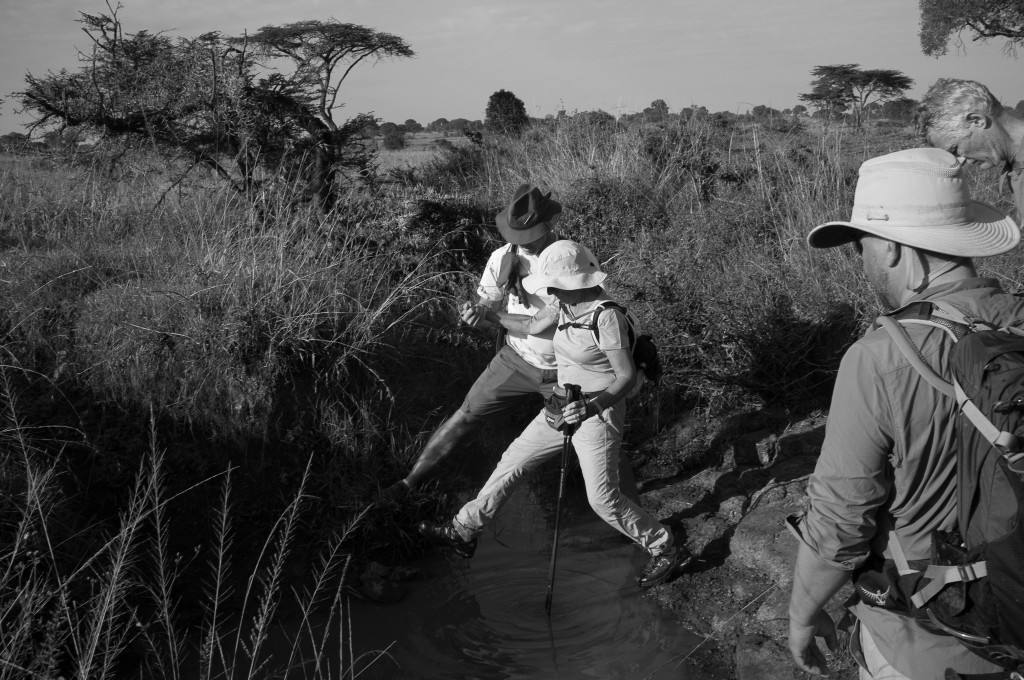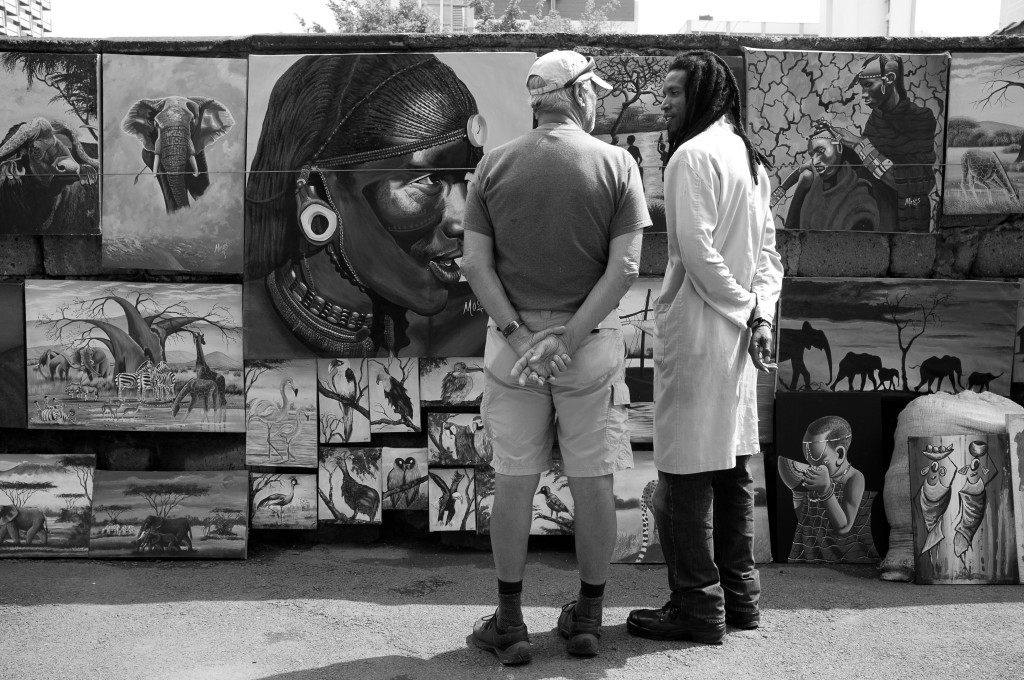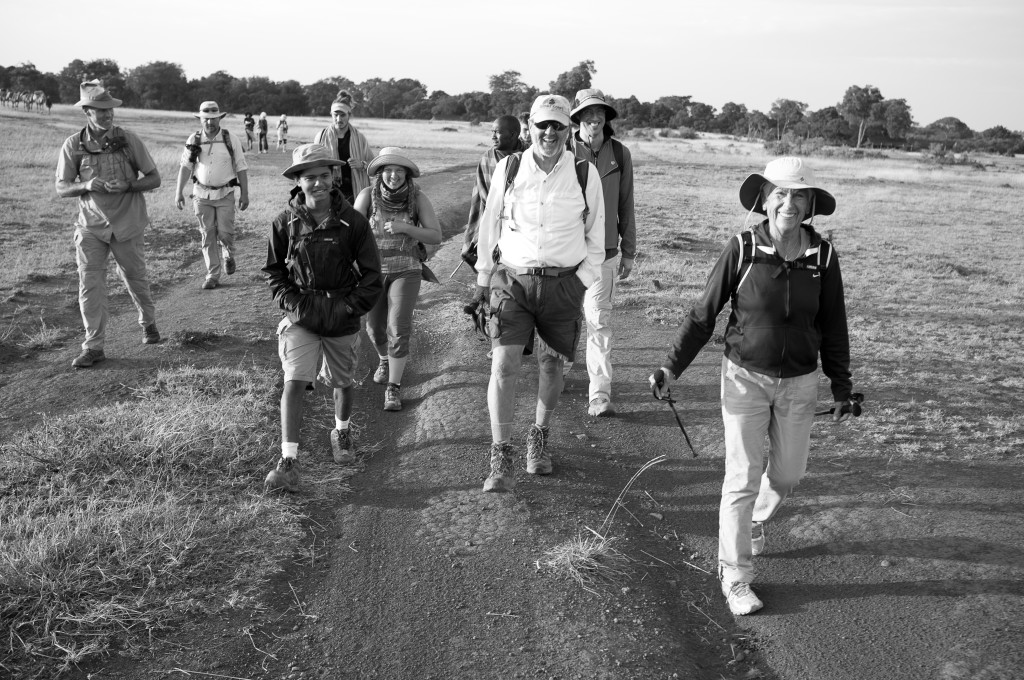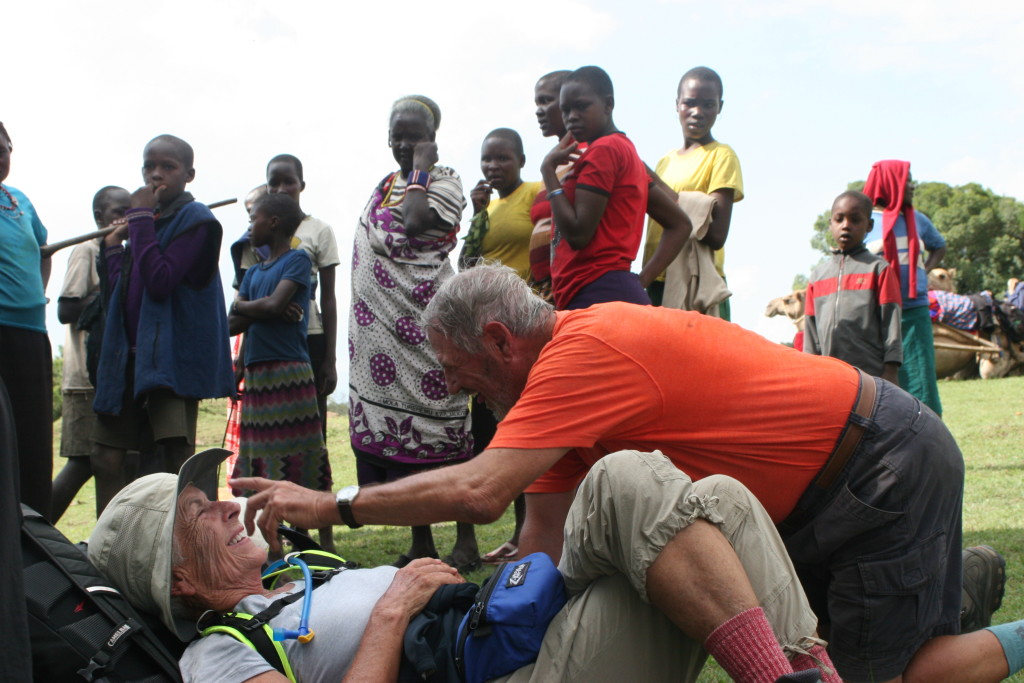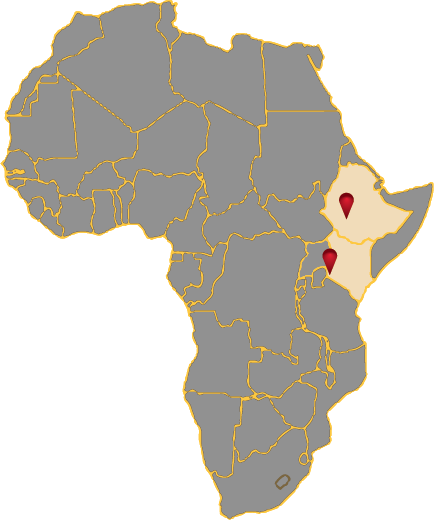This is Part 6 of a multi-part essay that chronicles Tembea Na Mimi, a walk across Kenya.
by Jeff James
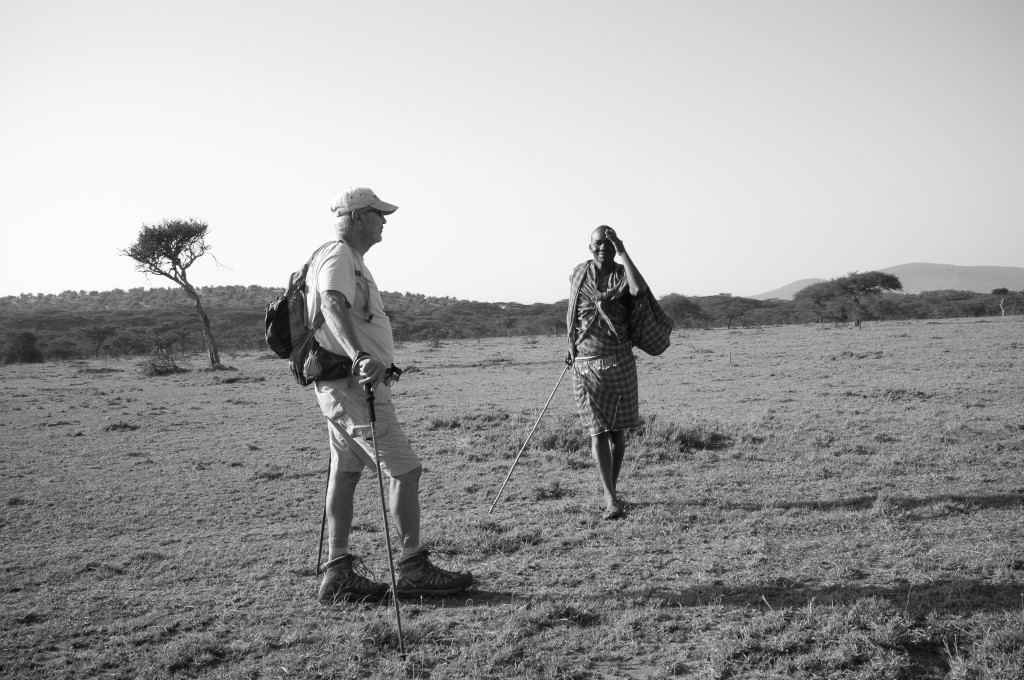 Our Elders, battle-scarred guardians, are the orators of history and culture. They are the wise leaders of our communities teaching us that age is relative, life’s pains multiply but become less noteworthy, and loss is understood best over time. A toddler’s traumatic loss of a soaring balloon pales to the loss of a pet, and that to the loss of a parent. The pain of a skinned knee can be walked off, but a new knee, like learning to walk for the first time, requires humility in place of grace. And from humility develops wisdom, and from wisdom Elders are born.
Our Elders, battle-scarred guardians, are the orators of history and culture. They are the wise leaders of our communities teaching us that age is relative, life’s pains multiply but become less noteworthy, and loss is understood best over time. A toddler’s traumatic loss of a soaring balloon pales to the loss of a pet, and that to the loss of a parent. The pain of a skinned knee can be walked off, but a new knee, like learning to walk for the first time, requires humility in place of grace. And from humility develops wisdom, and from wisdom Elders are born.
On day 3, as Peter sank into a narrow patch of shade, like an aching heap of fatigue, he grumbled, “This is the first time in my life that I have felt over 70.” They were not words of defeat; even at 77, Peter knows not the concept of surrender. He is a former U.S. Marine, baptized in fortitude, “Ooh Rah” until the end. His final cries will be the battle cries of a distinguished warrior, not some sissy complaining about sore feet. In fact, Peter can’t even feel his feet. With peripheral neuropathy below the knees, he only feels numbness or pain. But he doesn’t limp or gripe, he simply walks with a hammering purpose, his steps outpacing the camels and crew.
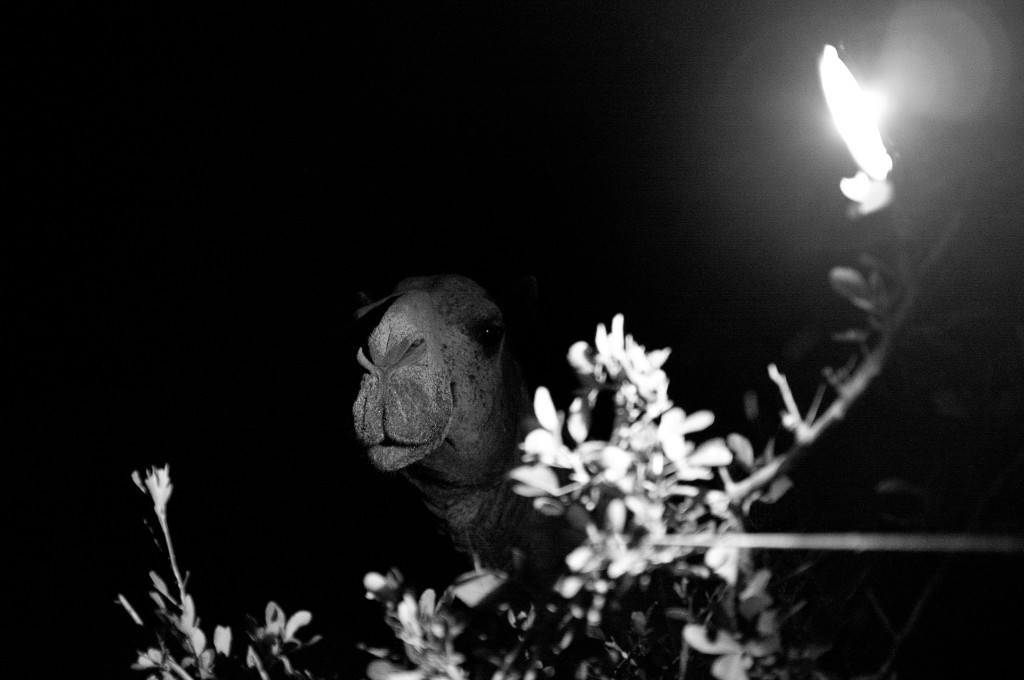
When he commented on his age, he was just being pragmatic. His statement was an expression of humility, a recognition that after all, perhaps being 77 does make this a little harder. Under the dappled light of that thorn tree, witnessing Peter feel his age, I wondered if pushing yourself to these physical extremes was healthy? Is it good to be forced to contemplate your own mortality under the duress of an adventure? Had Peter not come on this trip, he might be sunning himself leisurely on the coast of North Carolina, feeling youthful and energized, rather than feeling old and drinking dirty water. I worried.
But Peter’s psychic plummet was short-lived; 2 days later he had a transformation. He had passed through the learning-to-walk phase, and had mastered his stride and breath. Age became relative once again, when on day 5, Peter boomed, “I feel like I’m 47!” He walked like it too. He was a fast walker, out in front leading with James, learning Kenyan history, each step spinning years off his life. He was Benjamin Button on safari.
What could cause someone to feel old one day and spry and youthful the next? How is it that expending energy rejuvenates energy? And how is it that Peter, at 77, could overcome physical and mental fatigue, and then rebound as a new man? There was no recovery time. We were in the middle of nowhere.
I surmise age is relative, relative to many things, but here it seemed connected to the heart, to that intangible side of our consciousness where the soul resides. When you’re walking down a dirt path and everyone but you is cloaked in the traditional vestments of poverty, you take notice and contemplate the forces at work that created such disparities. And then you walk harder, hoping that you can make a difference, with stronger strides, and hopeful prayers. And perhaps, through the pathways of an open and engaged heart, it is possible to access a different kind of energy. Perhaps it’s possible to time-travel to an age when you felt your strongest. For Peter that must have been at 47.
Mama Jane, as Bara Bara liked to sing, “Mama Jane, Mama Thea … Mama Jane, Mama Thea …,” a spry 76 year-old, was naturally nervous about this “adventure” her husband coerced her to do. Before going to Kenya she had several bouts of doubt, second-guessing whether she could do this walk or not. After a couple of 13-mile training hikes back in Colorado, Jane would exhaustedly throw herself down at home and declare, “Forget it, I’m not going!” But with time, a rejuvenating meal, and Peter’s assurances that she could do this, she would waiver and wonder, Could I have done more? If I can walk 13 miles, I can certainly walk 2 more, she determined. And so Jane went to Kenya, to test her strength, and to walk with Peter. After all, Peter and Jane Obernesser have been walking together for nearly 53 years as husband and wife.
Nature is often conjured as an older woman, wise and gleaming with encouragement, nurturing us with gentle affirmations and milk and cookies. Other times she’s depicted with ferocity, thrashing us for our selfish ways.
Upon first meeting Jane, one might be inclined to label her as the archetypal grandmother, soft, sweet and buttery. And no doubt that side of Jane is real and dominates, but the time and stress from walking revealed a tougher character in Jane, someone strong, who is capable of walking 20+ miles in a day with the visceral force of Mother Nature.
Once at a mid-day break, parched by intense heat and dust, Peter suggested to me that Jane should ride the camel after the break. He was concerned about her, and thought she was tired. So I went to Jane and pitched the idea, to which she politely said no, that she would prefer to walk. When I persisted, and mentioned that Peter suggested that she might want to ride, I thought her husband’s concern for her well-being would make a difference. “He said that?” she blustered. “He can ride if he wants, but I’m walking,” she declared. And off she went, kicking up dust, walking into the noonday sun.
On the last day in Matoso, the guardians of the orphans, hunched grandmas weary from a lifetime of labor and loss, came to collect their weekly allotment of maize. They lined up before us, as if presented for our inspection. Jenipher Otieno, Lalmba’s Children’s Director, explained to us their plight and why we provide aid. They are the guardians of multiple grandchildren whose parents, their children, died of AIDS. A middle generation nearly wiped out, and the survivors, old women and small children, remain with little capacity to provide their basic needs.
This line of ladies was a face-to-face with reality, a boardroom meeting of the stakeholders and the investors, an opportunity for us to witness the gravitas of the need, giving perspective to our meager contributions. We walked to understand this. They are the “mimi” of “Tembea Na Mimi”, our ambulatory cause. When our backs, legs, hips, knees, and feet hurt, we considered what a lifetime of walking would feel like.
Jane’s focus had not been greater than at this moment. These were her age mates, women of her generation, struggling not only to survive but to keep their grandchildren alive and preserve their family and culture’s future. As a grandmother too, Jane’s bonds with them grew. She saw the unfair burdens that these women must hoist and wanted to share the weight.
After our introductions, burlap and nylon sacks were filled with measures of maize. We all passively watched the spectacle, uncomfortable with our voyeuristic role; we would rather be helping. A woman with rheumatoid hands passed her sack to the scooper, where she received extra doses indicating her grandchildren were many. When the sack was filled, its weight and mass were clear. And Jane implored aloud, reaching toward the sack, “How will she carry that?” Jane would have gladly unburdened her of her load and carried it to her home for her. But the woman, with concealed strength, hoisted the sack to her head, clutched her walking stick in her gnarled hand, and turned to face the steep incline home. Perhaps she was a little more hunched as she left, perhaps her impressions against the red soil were deeper for the weight, but this burden meant sustenance for her family for the next week.
Outside the tin shack, the storage room for the maize, another woman scattered a trail of kernels from a hole in the bottom of her sack. Jane squatted down in the dirt and lovingly gathered each kernel, and uttered aloud a private affirmation, “Every one of them counts, right?”
Every one of them counts. Every year, every loss, every ache, every echo of a child’s laugh, every memory of a time of strength and courage, they all count when adding up the life of an Elder. Their wisdom is the source of our hope, an assurance that life’s dreams will continuously regenerate and life’s challenges will be tackled by the force of experience.
At the end of day 6, Peter, the first to arrive at camp, waited in the shade for Jane. When she ambled into camp, he yelled to her, “How’s it going, baby?” And Jane smiled at him from beneath the brim of her hat, brandishing a thumbs up. It was going okay. They had reached the end of the day, and could finally drape their arms across each other’s shoulders, a daily ritual, with heads bowed and foreheads touching. They shared energy reserves and gave private and prayerful thanks for life, and perhaps renewed their vows … to keep going.
This morning when I woke up, my body ached and I groaned with the effort to upright myself. I’m nearly 50 with premature joint pain. I probably complain to my wife more than I should about this, secretly hoping that sympathy will be the balm to ease the way. But I know there is no balm but fortitude when it comes to aging — fortitude in the knowledge that life’s path is best navigated from the heart, pain is only a distraction aimed to slow you down, and love conquers all. I should hug my wife tonight to remind myself of that simple truth, a truth that can only be imparted by witnessing the strength and accomplishments of our Elders.

